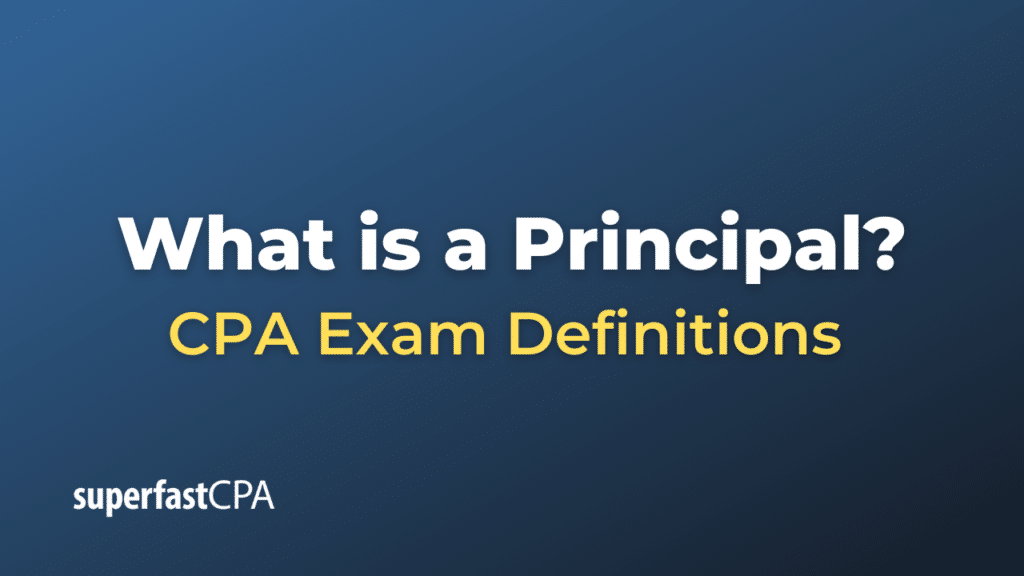Principal
The term “principal” can have several different meanings in finance, depending on the context. Here are the three most common uses:
- Loan Principal: This is the original amount of money that is borrowed or the remaining amount of the loan that has not yet been paid back to the lender. For example, if you take out a mortgage loan for $200,000, your initial loan principal is $200,000.
- Bond Principal: Also known as the face value or par value, this is the amount of money a bond will be worth at its maturity, and the amount on which the interest payments are calculated. For example, if a company issues a bond with a face value of $1,000, the principal of the bond is $1,000.
- Principal in Agency Relationships: This term can also refer to a person who has permitted (or directed) another to act on their behalf for a particular purpose and to the extent indicated in the agreement. For example, if you hire a stockbroker to buy and sell securities on your behalf, you are the principal in that relationship.
It’s important to understand the context in which the term “principal” is being used, as its meaning can change significantly based on that context.
Example of a Principal
Let’s explore examples for each of the three most common uses of “principal” in finance:
- Loan Principal: Let’s say you’ve taken out a car loan for $20,000 to buy a new vehicle. At the beginning of the loan, your loan principal is $20,000. After a year of making monthly payments of $400, you’ve paid off $4,800 of the loan (12 months x $400/month). The remaining principal on the loan is $15,200 ($20,000 – $4,800).
- Bond Principal: Suppose you buy a 10-year corporate bond with a face value of $5,000 and an annual interest rate (coupon rate) of 5%. The bond’s principal (its face value) is $5,000. This means that each year you will receive interest payments of $250 (5% of $5,000), and at the end of the 10-year term, you will receive the bond’s principal amount of $5,000 back.
- Principal in Agency Relationships : As an investor, you decide to hire a financial advisor to manage your investment portfolio. In this relationship, you are the principal. You authorize the financial advisor (the agent) to make investment decisions on your behalf, including buying and selling stocks, bonds, or other securities. This is based on an agreement you’ve made with your advisor, which typically includes guidelines about your risk tolerance, investment goals, and other factors. The financial advisor acts in your best interest to manage your investments and meet your financial goals.













